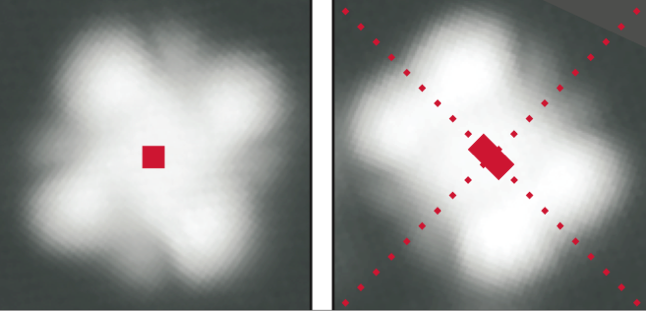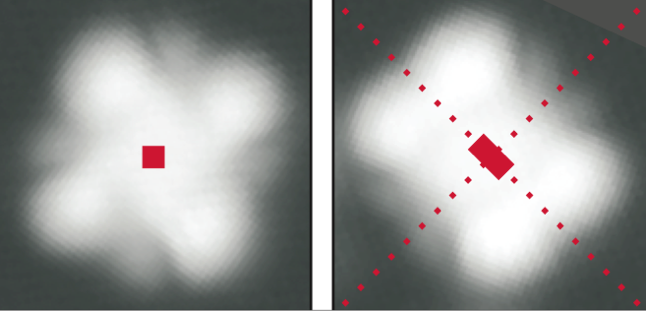Diffused by Symmetry
Molecules adsorbed on a surface do not necessarily stay in place but move around because of diffusion. Surfaces can have a preferred direction due to anisotropy, restricting molecular motion to one dimension. For complex molecules, the symmetry of the molecule itself can also have an effect on how it moves.
Writing in Physical Review Letters, Tobias Sonnleitner and colleagues at the University of Regensburg, Germany, present a scanning tunneling microscopy study of (II)-tetraazaphthalocyanine molecules on a surface. This molecule is of interest since it has four isomers with different symmetries. The authors find that the isomers show qualitatively different diffusion behavior, and propose that the symmetry of the adsorbed molecule affects this behavior. Because is an insulator, the adsorbed molecules are not expected to interact electronically as strongly as they would with a metallic surface, so symmetry effects play a bigger role.
The authors are careful to state that no direct selection rules exist with which to predict symmetry-based diffusion of molecules on a surface. However, their work provides new insight into the role of symmetry in surface science, particularly for adsorption processes of complex molecules. – Daniel Ucko





